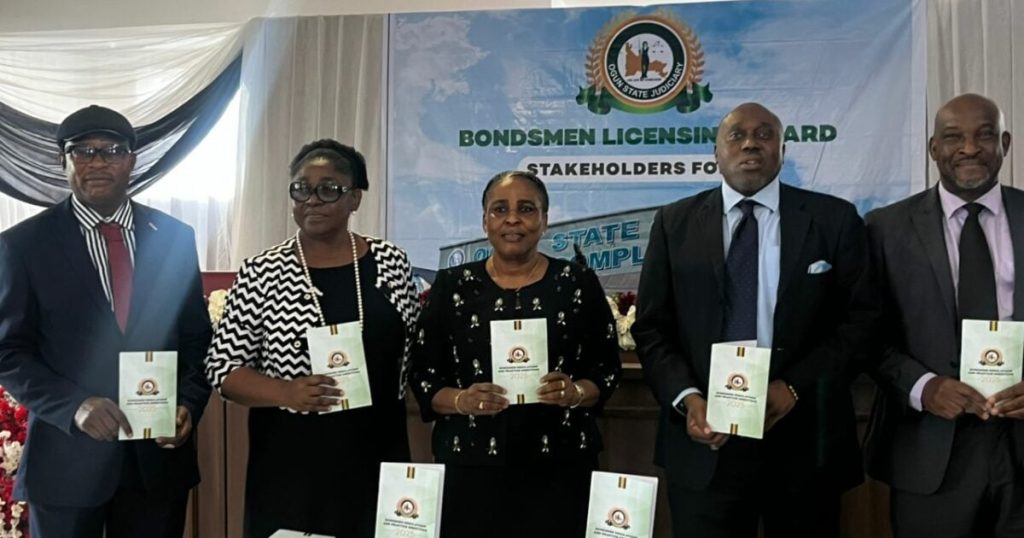The Ogun State Bondsmen Scheme, established five years ago, has achieved significant success in decongesting correctional facilities and reforming the bail system. Over 8,000 defendants have been released on bail through the scheme, representing a substantial increase from the 2,800 reported in late 2023. This achievement underscores the scheme’s effectiveness in upholding the rights of individuals awaiting trial and alleviating the burden on overcrowded prisons. The scheme has also successfully combated corruption and inefficiency within the bail process, eliminating the exploitation of defendants by unscrupulous individuals and streamlining the process for securing release. The Ogun State judiciary considers this accomplishment a key achievement of its seven-point agenda.
Building on this success, the Ogun State judiciary has undertaken further enhancements to the Bondsmen Scheme, including the licensing of a third bondsmen company, Praise and Moremi Bail and Bonds Limited, and the implementation of the 2025 Bondsmen Regulations. The new regulations aim to strengthen and standardize the operational framework of the scheme, addressing challenges such as defendants absconding after being granted bail. These regulations reflect a commitment to continuous improvement and a proactive approach to maintaining the scheme’s effectiveness. The expansion of licensed bondsmen also aims to further increase the scheme’s reach and impact.
A core component of the judiciary’s forward-looking strategy is the integration of technology into the bondsmen system. The vision is to establish a centralized digital platform that streamlines all aspects of the bail process, including applications, surety verifications, and court notifications. This digital transformation is expected to significantly reduce bureaucratic hurdles, minimize opportunities for corruption, and provide real-time data for enhanced management and oversight. A significant step towards realizing this vision is the creation of a digital database in early 2025, which records information on all defendants released on bail through the scheme.
The Ogun State Bondsmen Scheme has not only addressed prison congestion but also generated positive socio-economic impacts. The two existing bondsmen companies employ over 80 staff, contributing to job creation within the state. Furthermore, the scheme has effectively eradicated issues related to fake sureties, touts, and corrupt civil servants who previously exploited vulnerabilities within the bail system. The implementation of the Centralised Bondsmen Database further reinforces the scheme’s commitment to transparency and accountability, providing a robust platform for tracking and monitoring cases.
The 2025 Bondsmen Regulations introduce key changes to further strengthen the scheme’s effectiveness and ensure accountability. These include increased financial thresholds for the different categories of bondsmen licenses, reflecting a commitment to higher standards of operation and financial stability. Stricter penalties have also been introduced for non-compliance, including license revocation for bondsmen with three absconding clients within a six-month period and potential four-year bans for other violations. These measures are designed to deter malpractice and ensure the integrity of the bail bond process.
The Ogun State Bondsmen Scheme serves as a crucial component within the wider context of addressing prison congestion in Nigeria. While initiatives like presidential pardons, gubernatorial releases, and judicial jail delivery exercises play important roles, schemes like this provide a more systemic and sustainable approach to ensuring that pre-trial detention does not unduly infringe upon the rights of individuals. The release of 149 inmates through jail delivery in Ogun State this year further highlights the judiciary’s multifaceted approach to tackling this pervasive issue. The Bondsmen Scheme offers a practical solution to ensuring that those awaiting trial, who are presumed innocent until proven guilty, are not subjected to prolonged incarceration simply because they cannot afford bail.














